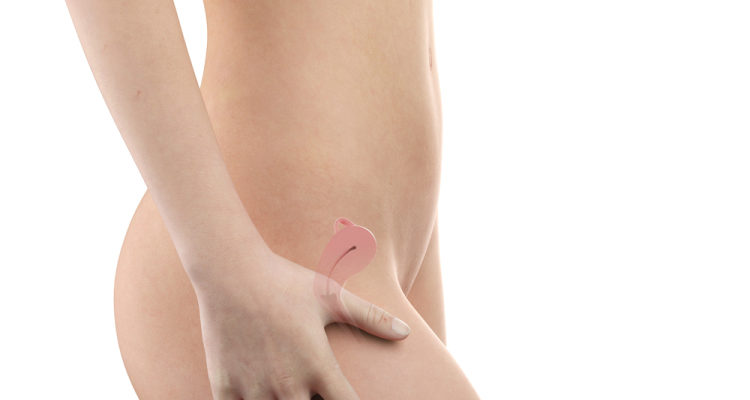
Main content:
Development of 4 weeks fetus
Maternal body changes at 4 weeks of pregnancy
Doctor's advice about 4 weeks pregnancy
Maternal and fetal health at 4 weeks
Development of 4 weeks fetus
How does the 4th week fetus develop?
4 weeks fetus is about 2 mm in size.
After four weeks of pregnancy, an embryo is made up of two layers of cells: epidermal tissue and endodermal tissue. These cells will develop into all of the baby's organs and body organs. Two other organs also developed at this time are the amniotic fluid and the yolk sac. The amniotic fluid filled with amniotic fluid surrounds and protects the developing embryo, keeping the task of ensuring the fetal development in an integral way. The oocyte produces blood and helps nourish the embryo until the placenta assumes that role.
Maternal body changes at 4 weeks of pregnancy
How does the mother's body change?
Week 4, the fetus is deep inside the uterus and implantation of the uterus will continue. After implantation, your baby will begin to produce a pregnancy hormone that helps maintain the lining of the uterus. This hormone will also send a signal to the ovaries to stop ovulation each month - this will stop mom's menstruation. Some women will experience mild spasms and develop blood spots while the implantation is in progress. You can easily confuse them for signs of menstruation.
HCG is a hormone that can be measured in pregnancy tests. This week when the pregnancy test is done, the mother will be able to find out she is pregnant. The HCG hormone is the cause of the pregnancy signs to show up this week. Since these first signs of pregnancy are very similar to premenstrual syndrome , when you feel tired, tingling or painful in your breasts and nauseous, you may mistakenly think that your period is approaching. begin. However, by the end of week 4, the menstrual cycle will not happen because the mother is pregnant.
4 weeks pregnant, what should mother note?
Some women may feel they are pregnant even before the pregnancy test. The earliest signs of pregnancy include:
Soft, painful, and swollen breasts:
Many women report that the pain they feel is just like menstrual pain, but is more severe.
Tired:
You will probably feel tired suddenly. Increasing levels of the hormone progesterone and how much effort you put in to have a baby can make you feel as though you have to run a long way after exhausted after a hard day's work.
Urinating often:
Immediately after becoming pregnant, mom can find herself always rushing to the toilet at a dense frequency.
More sensitive to scent:
Many new pregnant women are often overwhelmed by the scent of pregnancy. This can be a side effect of the rapidly increasing estrogen levels in the mother's body, especially during the 4th week of pregnancy.
Do not want to eat:
At this time, vomiting occurs even more often than when she had the cravings. She could suddenly feel that the foods she used to enjoy and was always happy to enjoy are now terrifying again.
Nausea or vomiting:
Morning sickness usually doesn't start just a few weeks after pregnancy. However, some women may still feel nausea before.
High temperature:
If you draw a chart showing body temperature and it's still high for 18 days in a row, you're probably pregnant.
Bleeding or spotting:
Some women will experience red, pink, or reddish-brown spots during their menstrual cycle. If you experience pain from bleeding, call your doctor right away as this could be a sign of ectopic pregnancy .
You may feel extremely curious, but try delaying your home pregnancy test. Most of these methods are ineffective until you are a week behind your period, so getting a pregnancy test right now will only waste money and time.
Doctor's advice about 4 weeks pregnancy
What should mom discuss with the doctor?
Ask your doctor: "When should I schedule my first prenatal visit?". Depending on the health of the mother, the doctor will help her to determine the best time to go for prenatal visit.
What tests do you need to know?
During the 4th week of pregnancy, mothers can know if they are pregnant or not. It's best to wait about a week after your period has been delayed to start a home pregnancy test. When you are ready to take a pregnancy test, read the instructions carefully because the instructions for use may vary depending on the brand that you use. To get the most accurate results, check it out first thing in the morning, when your mother's urine is at its most concentrated.
If the pregnancy test is negative and the mother still hasn't had a period, wait a few more days or a week and try again with another method. Do not assume that a negative result is not pregnant. Remember that you may still be carrying a 4-week-old baby!
Maternal and fetal health at 4 weeks
What do you need to know to ensure safety during pregnancy?
Blood Donation
Pregnant women cannot donate blood. In theory, blood donation during pregnancy can cause iron deficiency anemia. In addition, blood donation has not been shown to be safe for pregnant women. Therefore, blood donation organizations usually do not allow pregnant women to donate blood. Mothers who have just given birth should not participate in blood donation activities. The Red Cross recommends that mothers wait six weeks after giving birth. After this time, mothers can participate in blood donation regularly, even while mothers are breastfeeding.
Most women who already have children can donate red blood cells, but for some, pregnancy can affect your ability to donate platelets. Blood from some women with antibodies after pregnancy can cause complications in blood receiving patients. Blood donation centers can check for antibodies in the mother's blood before allowing her to donate platelets.












